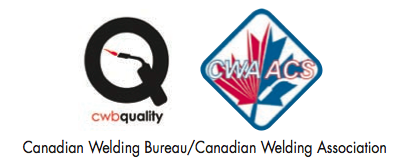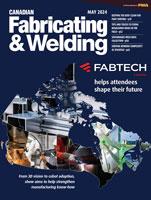- FMA
- The Fabricator
- FABTECH
- Canadian Metalworking
Business of welding: Is welding a career?
Students should be directed into the trades because they show real and measurable aptitude and interest, not because of the perception that they lack the marks for university.
- By Canadian Metalworking
- April 24, 2014
When it comes to education, Canada’s a funny place. On one hand we are a highly educated country, and on the other we are hamstrung by our inability to get the skilled workforce we need to get things done.
It would appear, sometime over the last four or so decades we’ve lost our way, and as a result we now have a lot of book smart people, with a lot of great ideas, but too few people who can actually turn those ideas into the products and infrastructure we all need to keep this country going.
We might be a “knowledge economy” on paper – there are a lot of university graduates with PhD’s and MBA’s driving taxis and serving coffee, but with so few skilled tradespeople we are looking beyond our shores to fill the jobs.
So, where have all the “doers” gone? Well, they’re not gone, we just haven’t created enough of them.
Last weekend I was reading through the local Toronto paper and there was an article about Yousuf Karsh – who is one of Canada’s greatest photographers. Turns out that back in the ‘50s he was hired by Ford to photograph their workforce.
Ford did it for a reason: They wanted to show something important to their investors and customers, namely “pride of work”. Karsh was a master of the camera, and what he was able to capture with the employees he photographed was an honest expression of commitment and pride in what they were doing.
It got me thinking - these were not the faces of people who were simply working a ‘job’, these were tradespeople who had a career with Ford. What’s worth remembering is that back in those days large industry fostered the concept of a ‘career’ in the trades.
For better or worse, regardless of the working conditions and pay, they provided and supported the idea that skilled trades were important and had value. The skills learned were not merely a route to a job, but a foundation to a career.
Getting employed at Ford, or any other large manufacturer, was a career decision, defining a clear path forward in life.
As much as I might paint a rosy picture of the past, I do know it was not always great. There have been lots of labour struggles, and major shifts in skilled roles due to technology and offshoring that have fundamentally changed business.
That said, I still think there are things we can learn from the past starting with the idea of trades, welding being one of them, as a real career path and not simply a job. Think about that last comment for a second: A job is just something you “do”, a place you go to get paid. A career is what you get when the job you do is a good match for your skills, is something you love to do, and fits your needs, providing a path towards the future.
“You have to love what you do to be successful” – this is something I’ve been told several times in my career, and I fully buy into it. But the hard truth behind the saying is that someone has to first recognize the “love” (and your associated skills), and provide an opportunity for you to use it to contribute to both your and their success.
This is the role education and employers have to play.
Educators need to start putting value back into the idea of a pursuing a career in the trades. This starts in grade school and high school where ideas and perceptions around what people do for a living are made. Careers relating to skills (the ability to do something) should have equal value to those tied to knowledge (understanding how to do something) because fundamentally, within a modern society, one is totally useless without the other.
Students should be directed into the trades because they show real and measurable aptitude and interest, not because of the perception that they lack the marks for university.
At the post secondary level we need educators and industry to come together and re-build the concept of "career training" that supports an on-going career within a chosen industry. As much as educators can prime the future employee pump, industry is really the final arbitrator of success as they do the hiring. What is important here is that industry, and industry organizations, need to take stewardship of the trades they employ, acting where and when governments don’t to support the future growth of those trades.
Yes, education is a provincial jurisdiction, and it’s sometimes easier to sit back and let the educators and bureaucrats try and work out a system that attempts to deliver what’s truly needed. But would it not be better to have industry help lead the change? After all, one of the objectives of any educational system is to find employment for its students. In this respect industry has a very large hammer, so to speak - maybe it’s time to start swinging it.
If the needs of industry in terms of skilled graduates are not met, or are met too slowly, then industry has the right to vote with its feet – impacting local employment levels and taxes.
As Canada’s welding organization, the CWB Group is fully committed to working with industry, educators and all levels of government to foster and create welding as true career.
Stay tuned for more announcements in the coming months. As always, if there’s something the Canadian Welding Association can do to help you please let me know.
subscribe now


Keep up to date with the latest news, events, and technology for all things metal from our pair of monthly magazines written specifically for Canadian manufacturers!
Start Your Free SubscriptionAbout the Author
- Industry Events
MME Saskatoon
- May 28, 2024
- Saskatoon, SK Canada
CME's Health & Safety Symposium for Manufacturers
- May 29, 2024
- Mississauga, ON Canada
DiPaolo Machine Tools Open House 2024
- June 4 - 5, 2024
- Mississauga, ON Canada
FABTECH Canada
- June 11 - 13, 2024
- Toronto, ON Canada
Zoller Open House & Technology Days 2024
- June 12 - 13, 2024
- Ann Arbor, MI





















